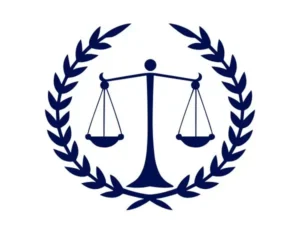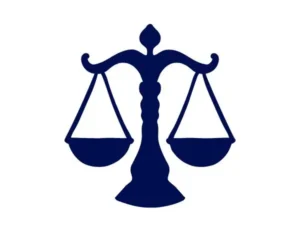At Justin Palmer Law Group, we stand firmly committed to protecting your constitutional rights and holding law enforcement accountable when they cross the line. As your police excessive force lawyer in California, we bring unwavering dedication to seeking justice for victims of law enforcement misconduct and excessive force. Contact us today for a confidential consultation to discuss your case with an attorney for police brutality matters. Let us fight for justice on your behalf.
What Constitutes Excessive Force By Police in California?
Excessive force by police is defined through both state law and federal constitutional standards. The key definition comes from the Fourth Amendment's "objective reasonableness" standard established in Graham v. Connor (1989).
Under California law, excessive force occurs when an officer uses more force than a reasonable officer would use under the same circumstances. This is evaluated based on the "totality of circumstances" at the moment force was used, not with hindsight.
Courts in California examine several specific factors:
- The severity of the crime at issue
- Whether the suspect posed an immediate threat to officers or others
- Whether the suspect was actively resisting or attempting to evade arrest
- The amount of time officers had to evaluate the situation
- The number of officers present versus number of suspects
- The alternative tactics available to officers
- Whether warnings were given before force was used
California law also sets specific restrictions through the California Penal Code Section 835a, which requires officers to:
- Use de-escalation techniques when feasible
- Use force only when necessary
- Use deadly force only when necessary to defend against an imminent threat of death or serious bodily injury
Additionally, AB 392 (effective January 2020) changed the standard for justified use of deadly force from "reasonable" to "necessary," making California's standard one of the strictest in the nation.
Force becomes excessive when it exceeds what a reasonable officer would consider necessary given these factors. The assessment is based on the officer's perspective at the moment, but must be objectively reasonable rather than based on the officer's subjective fears or motivations.
Financial Compensation for Police Excessive Force Victims
As your police excessive force lawyer, Justin Palmer Law Group understands the profound impact that law enforcement misconduct can have on your life. When working with an attorney for police brutality cases, it's important to understand the various types of compensation you may be entitled to receive. Below we outline the potential financial recoveries available in excessive force cases:
- Medical Expenses - Present: Compensation for all current medical treatments, hospital stays, emergency room visits, and ambulance services directly related to injuries sustained during the incident
- Medical Expenses - Future: Coverage for anticipated ongoing medical care, including physical therapy, rehabilitation services, and any necessary surgical procedures resulting from the excessive force incident
- Lost Wages: Reimbursement for income lost while recovering from injuries, attending medical appointments, or participating in legal proceedings related to your police excessive force case
- Loss of Earning Capacity: Compensation for reduced ability to earn income in the future due to permanent injuries or disabilities caused by the excessive force incident
- Pain and Suffering: Financial recovery for physical pain, discomfort, and reduced quality of life experienced as a result of the police misconduct
- Emotional Distress: Compensation for psychological trauma, anxiety, depression, PTSD, and other mental health impacts stemming from the excessive force incident
- Property Damage: Reimbursement for any personal property damaged or destroyed during the incident, including clothing, phones, vehicles, or other belongings
- Punitive Damages: Additional compensation specifically designed to punish particularly egregious misconduct and deter future excessive force by law enforcement
- Civil Rights Violations: Compensation for the violation of your constitutional rights, including protection against unreasonable force and equal protection under the law
- Loss of Consortium: Damages awarded to family members for the impact on their relationship with the victim, including loss of companionship and support
- Rehabilitation Costs: Coverage for necessary occupational therapy, vocational rehabilitation, or job retraining if injuries prevent return to previous employment
- Disfigurement: Compensation for permanent scarring, visible injuries, or other physical changes resulting from the excessive force incident
As your police excessive force lawyer, we will carefully evaluate all potential areas of compensation to ensure we pursue maximum recovery in your case. The specific types and amounts of compensation available will depend on the unique circumstances of your case, severity of injuries, and long-term impact on your life.
How a Police Excessive Force Lawyer Protects Your Rights

At Justin Palmer Law Group, we understand that facing law enforcement misconduct can be overwhelming and intimidating. As your police excessive force lawyer, we employ numerous strategies to protect your rights and pursue justice. Here's how we assist clients who have experienced police brutality:
- Immediate Legal Protection: Your police excessive force lawyer acts as a shield between you and law enforcement, handling all communication to prevent any potential intimidation or rights violations following the incident.
- Evidence Preservation: We take swift action to secure crucial evidence, including surveillance footage, body camera recordings, witness statements, and medical records before they can be altered or destroyed.
- Constitutional Rights Assessment: As your attorney for police brutality claims, we conduct a thorough evaluation of how your constitutional rights were violated during the incident and document every infringement.
- Medical Documentation: We work with healthcare providers to ensure all injuries are properly documented and linked to the excessive force incident, creating a clear record for your claim.
- Witness Coordination: Your police excessive force lawyer identifies and interviews witnesses promptly, securing sworn statements while memories are fresh and protecting them from potential intimidation.
- Policy Analysis: We thoroughly review department policies, training protocols, and past incidents to identify patterns of misconduct or policy violations that strengthen your case.
- Legal Filing Management: We handle all legal paperwork within strict deadlines, including notice requirements, administrative claims, and court filings to preserve your right to seek compensation.
- Investigation Oversight: As your attorney for police brutality matters, we conduct an independent investigation parallel to any internal affairs or criminal investigations to ensure thoroughness and accuracy.
- Strategic Communication: We manage all interactions with law enforcement agencies, their attorneys, and insurance representatives to protect your interests and prevent any statements that could harm your case.
- Rights Education: Your police excessive force lawyer ensures you understand your rights at each stage of the process, empowering you to make informed decisions about your case.
- Administrative Procedures: We navigate complex administrative requirements, including filing governmental claims and meeting notice deadlines that are crucial to preserving your right to sue.
- Settlement Evaluation: We carefully analyze any settlement offers, ensuring they adequately compensate you for all damages while protecting your rights to future medical care if needed.
- Civil Rights Protection: Your attorney for police brutality cases ensures your civil rights are protected throughout the legal process, including protection against retaliation or further misconduct.
- Documentation Management: We maintain comprehensive records of all case-related materials, creating a clear timeline of events and protecting crucial evidence for your claim.
Common Injuries Associated with Excessive Force by Police
When working with an attorney for police brutality cases, it's important to recognize and properly document all injuries, both physical and psychological. Here are the common injuries we encounter:
- Head and Brain Trauma: Concussions, traumatic brain injuries (TBI), and skull fractures often resulting from strikes to the head, forceful takedowns, or impact with hard surfaces during arrests.
- Spinal Cord Injuries: Damage to the vertebrae, discs, or spinal cord frequently caused by excessive force during restraint, improper submission holds, or aggressive takedown maneuvers.
- Facial Injuries: Broken noses, orbital fractures, jaw injuries, and dental damage commonly occurring during forceful arrests or from direct strikes to the face.
- Respiratory Distress: Breathing difficulties and throat injuries resulting from improper chokeholds, excessive pressure on the chest or back, or chemical irritants like pepper spray.
- Joint Injuries: Damage to shoulders, knees, elbows, and wrists often caused by excessive force during handcuffing, joint locks, or forceful manipulation of limbs.
- Soft Tissue Damage: Sprains, strains, and deep tissue bruising resulting from rough handling, improper restraint techniques, or excessive physical force.
- Taser Injuries: Burns, muscle damage, and cardiac complications from improper or excessive use of electronic control devices during arrests.
- Internal Injuries: Damage to organs, internal bleeding, and tissue damage often caused by strikes, kicks, or excessive pressure to the torso.
- Psychological Trauma: Post-traumatic stress disorder (PTSD), anxiety, depression, and other mental health conditions resulting from the excessive force incident.
- Nerve Damage: Permanent or temporary loss of sensation, movement, or function due to improper restraint techniques or excessive pressure on nerve points.
- Fractures and Broken Bones: Injuries to arms, legs, ribs, and other bones resulting from excessive force during arrests or physical confrontations.
- Eye Injuries: Vision damage or loss from direct trauma, pepper spray exposure, or other chemical agents used during encounters.
- Gunshot Wounds: Injuries ranging from flesh wounds to life-threatening trauma resulting from unjustified or excessive use of firearms.
- Restraint Injuries: Cuts, bruises, and nerve damage from overly tight handcuffs or improper use of other restraint devices.
As your police excessive force lawyer, we understand that these injuries can have long-lasting physical, emotional, and financial impacts on your life. Our role as an attorney for police brutality cases includes ensuring all injuries are properly documented, evaluated by medical professionals, and considered in your claim for compensation.
Common Causes of Excessive Force By California Police
At Justin Palmer Law Group, our experience as a police excessive force lawyer has revealed several recurring factors that often contribute to incidents of law enforcement misconduct. As an attorney for police brutality cases, we've identified these common causes through extensive case analysis and investigation:
- Inadequate Training: Officers may lack proper training in de-escalation techniques, crisis intervention, or appropriate use of force protocols, leading to unnecessary escalation of routine encounters.
- Departmental Culture: Some law enforcement agencies develop an organizational culture that tacitly permits or fails to adequately address excessive force incidents, creating a pattern of misconduct.
- Implicit Bias: Unconscious prejudices and stereotypes can influence officer decision-making, potentially leading to disproportionate use of force against certain communities.
- Poor Supervision: Insufficient oversight of officers with previous complaints or a history of using excessive force can enable continued misconduct and rights violations.
- Stress and Fatigue: Officers working extended shifts or in high-stress environments may experience compromised judgment and decreased ability to make reasonable force decisions.
- Communication Breakdown: Failure to effectively communicate with individuals, particularly those in crisis or with language barriers, can lead to unnecessary escalation and use of force.
- Misperception of Threat: Officers may incorrectly assess the level of danger in a situation due to inadequate information, poor lighting, or rushed judgment, resulting in excessive force.
- Equipment Issues: Improper maintenance or training with law enforcement equipment, such as tasers or restraint devices, can lead to unintended injury or excessive force.
- Pressure to Act Quickly: Situations where officers feel compelled to make rapid decisions without adequate time to assess circumstances can result in unnecessary force.
- Lack of Accountability: Insufficient internal review processes or resistance to civilian oversight can create an environment where excessive force goes unchecked.
- Poor Crisis Response: Inadequate training in mental health crisis intervention can lead to excessive force against individuals experiencing mental health emergencies.
- Group Dynamics: The presence of multiple officers can sometimes lead to a "pile-on" effect where individual judgment is compromised by group behavior.
Who is Liable for Your Excessive Force Injuries?
As your police excessive force lawyer, Justin Palmer Law Group understands that determining liability in law enforcement misconduct cases can be complex. Multiple parties may bear responsibility for your injuries, and as your attorney for police brutality claims, we thoroughly investigate all potential sources of liability to ensure full compensation. Here are the parties who may be held accountable:
- Individual Officers: The law enforcement officers who directly used excessive force or failed to intervene when witnessing colleagues using excessive force can be held personally liable for your injuries.
- Police Department: The law enforcement agency itself may bear responsibility if departmental policies, practices, or customs encouraged or permitted the use of excessive force against civilians.
- Police Supervisors: Command staff and supervisors who failed to properly train, supervise, or discipline officers with known histories of excessive force can be held liable for resulting injuries.
- City or County Government: The municipal or county entity that oversees the police department may be liable through vicarious liability or for maintaining policies that led to constitutional violations.
- Training Officers: Individuals responsible for inadequate or improper training of officers in use of force protocols may share liability for resulting injuries to civilians.
- Private Security Companies: When working in coordination with law enforcement, private security firms may share liability for excessive force incidents involving their personnel.
- Equipment Manufacturers: Companies that produce defective law enforcement equipment or fail to provide proper training materials may be liable if their products contribute to injuries.
- Partner Agencies: Other law enforcement agencies working jointly with the primary department may share liability if their personnel participated in or failed to prevent excessive force.
- Police Unions: In some cases, police unions may share liability if their actions protected officers with known histories of excessive force or prevented proper discipline.
- State Government: State agencies may bear liability when state policies, training standards, or oversight failures contribute to excessive force incidents.
- Federal Agencies: When federal officers are involved or federal policies contribute to local excessive force incidents, federal agencies may share responsibility.
- Contracted Services: Private companies contracted for law enforcement services may be liable when their employees participate in excessive force incidents.
Get Help from a Police Excessive Force Lawyer
If you've experienced excessive force by law enforcement, don't face this challenging situation alone. At Justin Palmer Law Group, we provide dedicated representation to protect your rights and pursue the compensation you deserve. Contact us today for a confidential consultation to discuss your case with an attorney for police brutality matters. Let us fight for justice on your behalf.
Police Excessive Force Lawyer FAQs

How long do I have to file an excessive force claim in California?
In California, you generally have six months to file a government claim and one year to file a federal civil rights lawsuit. However, these deadlines can vary based on specific circumstances, making it crucial to consult a police misconduct lawyer near me promptly.
Can I file a claim if there were no witnesses to the excessive force?
Yes. Your attorney for police brutality cases can help build your case using various forms of evidence beyond witness testimony, including medical records, body camera footage, surveillance video, dispatch records, and physical evidence.
What if the police claim I was resisting arrest?
Claims of resistance don't automatically justify excessive force. We examine whether the force used was proportional to the situation and if officers followed proper escalation protocols, regardless of alleged resistance.
Will filing a complaint affect my criminal case?
Your excessive force claim is separate from any criminal charges. However, these cases can interact in complex ways, making it essential to have a police excessive force lawyer coordinate your defense strategy.
What if I signed a statement saying the police didn't hurt me?
Statements signed under duress or immediately after a traumatic incident may be challenged. We can often demonstrate that such statements were made under pressure or before the full extent of injuries was known.
Can undocumented immigrants file excessive force claims?
Yes. Constitutional protections against excessive force apply to everyone within U.S. jurisdiction, regardless of immigration status. Your attorney for police brutality matters can help protect your rights while addressing immigration concerns.
What if my injuries seemed minor at first but got worse?
Some injuries develop or worsen over time. We work with medical professionals to document the full progression of your injuries and their long-term impact, ensuring your claim reflects complete damages.
Will my case go to trial?
While many excessive force cases settle before trial, we prepare every case as if it will go to court. This thorough preparation often leads to better settlement offers and positions us strongly if trial becomes necessary.
Can I file a claim if the officer was off-duty?
Yes, if the officer was acting under "color of law" or using their police authority. We examine the specific circumstances to establish department liability even in off-duty incidents.
What if there's already an internal affairs investigation?
Internal investigations are separate from civil claims. Your police brutality lawyer will conduct an independent investigation while monitoring the internal process to protect your rights and interests.



